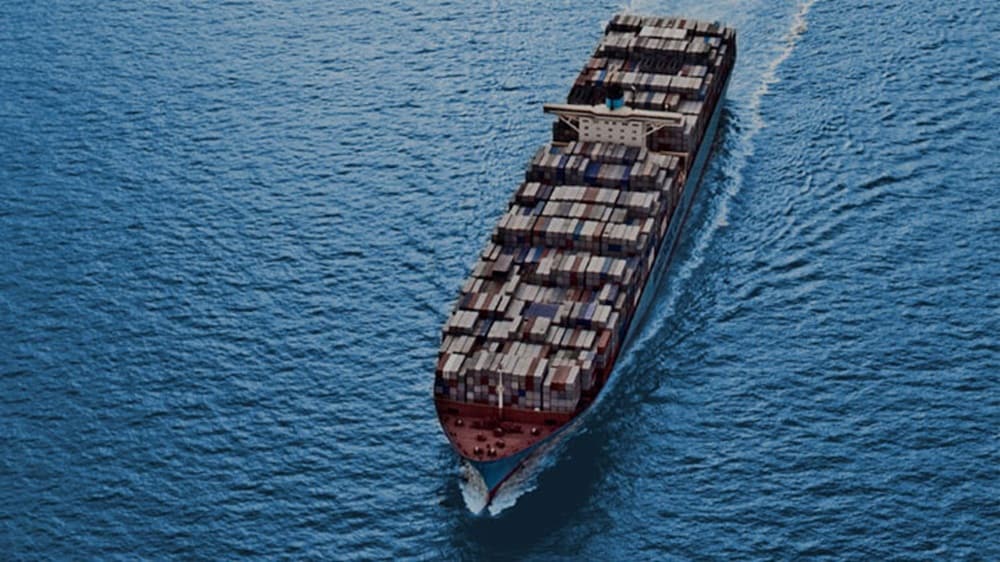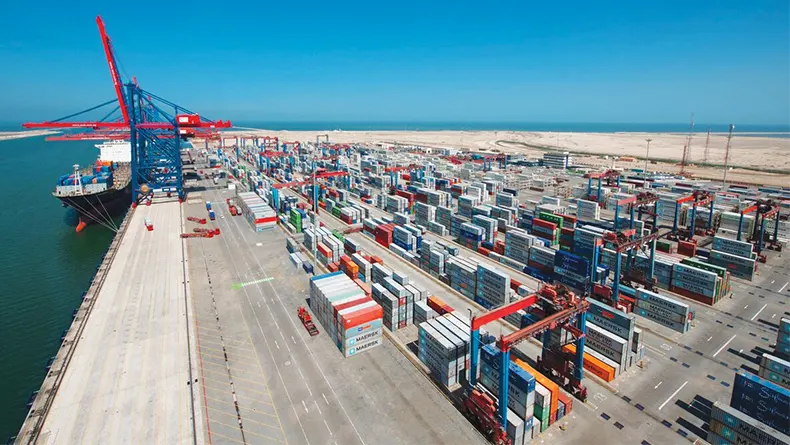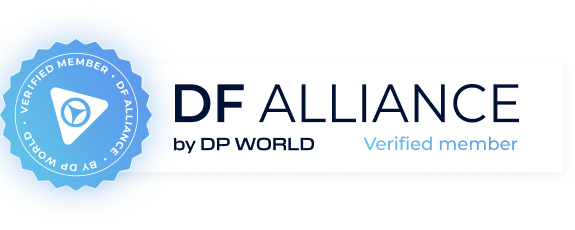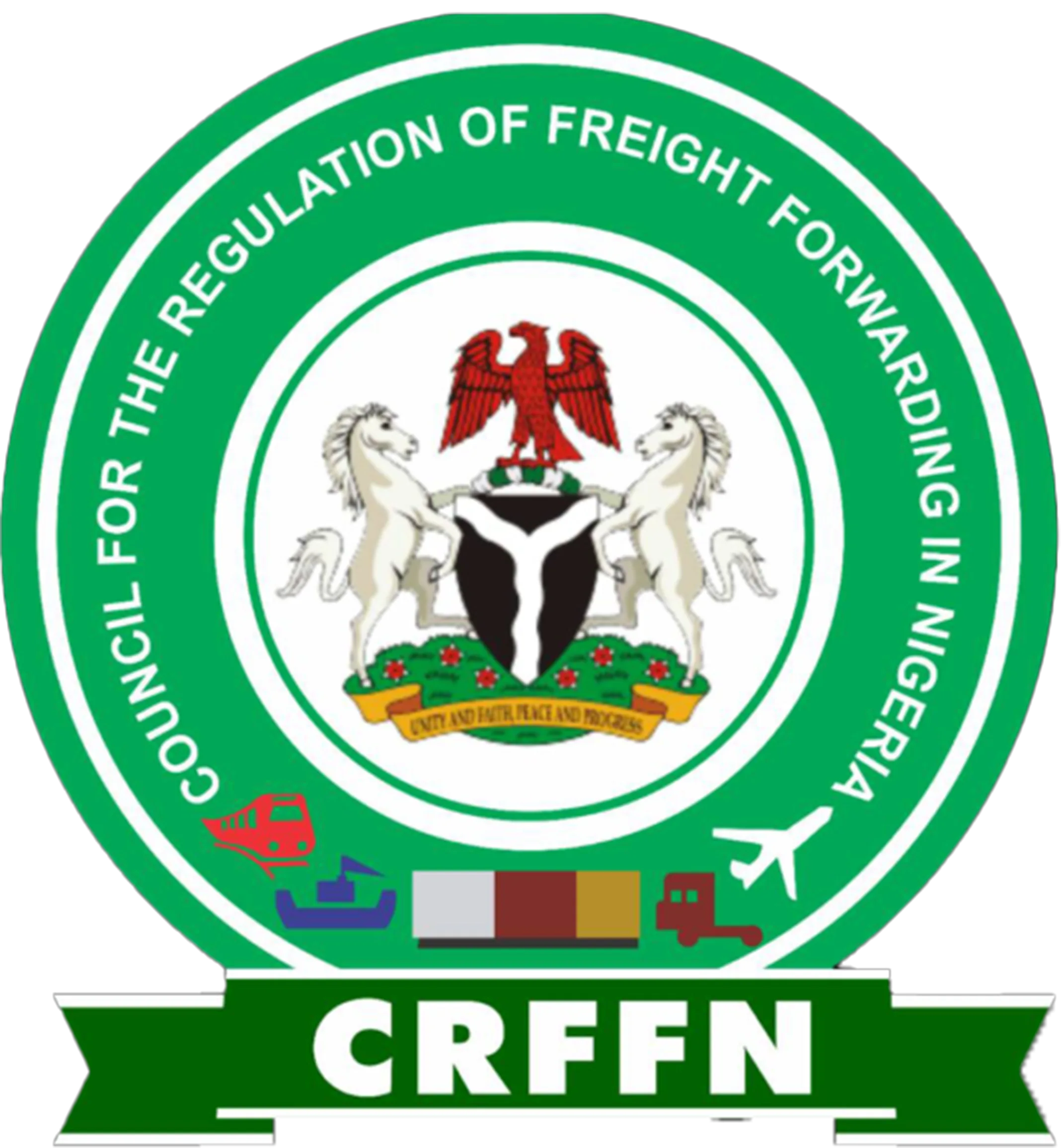Connecting Nigeria across Africa and beyond
Nigeria, a powerhouse of economic activity in Africa, presents a complex yet rewarding trade landscape. Limark, with its deep understanding of local regulations, customs procedures, and diverse transportation networks, is your trusted partner in navigating this vibrant market.
We provide end-to-end logistics solutions for businesses of all sizes, handling everything from customs brokerage and freight forwarding to warehousing and distribution. Our extensive experience and vast network across Africa ensure the efficient movement of your cargo, whether you’re exporting Nigeria’s rich resources or importing essential goods.

Import regulations
Importing goods to Nigeria requires navigating specific procedures and documentation. Here’s a breakdown of the essential requirements:
Product categories requiring import licenses/permits
Food and agricultural products:
- Rice: Requires an import permit from the Federal Ministry of Agriculture and Rural Development (FMARD) and a phytosanitary certificate from the Nigerian Agricultural Quarantine Service (NAQS). Strict quality standards and inspection procedures are in place.
- Sugar: Import permits are issued by FMARD and the National Sugar Development Council (NSDC) to regulate sugar imports and protect local production. Quotas may apply, and adherence to quality standards is mandatory.
- Wheat Flour: Import permits from FMARD are required to ensure adequate domestic supply and control prices.
- Vegetable Oil: The importation of vegetable oil is subject to import permits from FMARD, and preferential tariffs apply to crude palm oil (CPO) imports from ECOWAS member states.
- Fish: Import permits are required from the Federal Department of Fisheries (FDF) to ensure compliance with sanitary and phytosanitary standards.
- Live Animals and Animal Products: Import permits and health certificates from the Veterinary Quarantine Services (VQS) under FMARD are necessary to prevent the introduction of animal diseases.
Pharmaceuticals and medical devices:
- Medicines: All imported medicines must be registered with NAFDAC and have a valid marketing authorization (MA). The registration process involves submitting comprehensive product dossiers, including manufacturing details, clinical trial data, and quality control information.
- Medical devices: Import permits are required from NAFDAC. Devices must be classified according to their risk level, and additional documentation like free sale certificates may be needed.
Chemicals and Hazardous Materials:
- Industrial Chemicals: Import permits from NESREA are mandatory, and importers must submit detailed chemical safety reports and comply with the Globally Harmonized System of Classification and Labelling of Chemicals (GHS).
- Pesticides: Special authorization from the Federal Ministry of Environment is required for importing pesticides. Importers must demonstrate the need for the pesticide, its safety, and compliance with environmental regulations.
- Hazardous materials: Imports must comply with international transport regulations (ADR, IMDG, IATA) and obtain relevant permits from NESREA.
Used vehicles and machinery:
- Vehicles: Import permits from the NCS are required. Used vehicles must be less than 15 years old from the year of manufacture and undergo pre-shipment inspection to verify roadworthiness and compliance with Nigerian standards.
- Machinery: Import permits are required, and specific regulations may apply depending on the type and intended use of the machinery. Used machinery may be subject to age restrictions and condition assessments.
Textiles and apparel:
- Import Prohibition List (IPL): Certain textile and apparel items are listed on the IPL and prohibited from importation to protect the local industry.
- Textile Import Monitoring System (TIMS): Importers must register with the TIMS and obtain an import permit for eligible textile products.
Prohibited and restricted imports
Prohibited
- Narcotic drugs and psychotropic substances
- Counterfeit and pirated goods
- Hazardous waste (Basel Convention)
- Ozone-depleting substances (Montreal Protocol)
- Live or dead birds (except with special permits)
- Used refrigerators and air conditioners
- Military equipment (without authorization)
- Items on the Import Prohibition List (IPL)
Restricted
- Live animals and animal products (require health certificates)
- Plants and plant products (require phytosanitary certificates)
- Used vehicles (age restrictions apply)
- Second-hand clothing (except for personal effects)
- Alcohol (subject to high taxes and requires specific permits)
- Tobacco products (subject to high taxes and require specific permits)
- Chemicals and hazardous materials
Relevant agencies
- Nigeria Customs Service (NCS): The primary agency responsible for enforcing import regulations, collecting duties and taxes, and facilitating trade.
- Federal Ministry of Finance, Budget, and National Planning: Oversees fiscal policies, including import tariffs and taxes.
- National Agency for Food and Drug Administration and Control (NAFDAC): Regulates the import of food, drugs, cosmetics, medical devices, and other related products.
- Federal Ministry of Agriculture and Rural Development (FMARD): Responsible for regulating agricultural imports and promoting agricultural development.
- Nigerian Agricultural Quarantine Service (NAQS): Ensures that imported agricultural products comply with phytosanitary standards.
- Federal Ministry of Health: Regulates the import of pharmaceuticals and medical devices.
- National Environmental Standards and Regulations Enforcement Agency (NESREA): Regulates the import of chemicals and hazardous materials.
- Ministry of Industry, Trade, and Investment: Oversees trade policies and promotes industrial development.
- Standards Organization of Nigeria (SON): Responsible for setting and enforcing standards for imported goods.
Free Time
- Typically, 3-7 days for general cargo and 14 days for containerized cargo after discharge.
- Varies depending on the shipping line and terminal.
- Extended free time may be granted in the contract of carriage or under specific circumstances.
Demurrage charges
- Applied when the free time is exceeded
- Calculated per container, per day
- Rates vary depending on the shipping line, container size, and time elapsed
- Escalation clauses may apply after a certain period
Detention charges
- Applied when the container is held beyond the agreed-upon time for return to the shipping line after being picked up from the port.
- Separate from demurrage charges.
- Rates vary depending on the shipping line and container size.
Storage Limitations
- Port terminals have limited storage capacity.
- Containers not cleared within the allowed time are moved to an off-dock depot at the importer’s expense, incurring additional storage fees.
Calculation Methods
- Demurrage and detention are usually calculated based on calendar days, including weekends and public holidays.
- Some shipping lines may offer a grace period before applying charges.
Commercial Invoice
- Must be issued by the supplier and include detailed information about the goods, including:
- Full description of goods (including HS codes, brand, model, specifications)
- Quantity, weight, and unit price of goods
- Total invoice value in USD or NGN
- Incoterms (International Commercial Terms)
- Payment terms (e.g., letter of credit, telegraphic transfer)
- Full details of the consignee and consignor (name, address, contact information)
Packing List
- Must provide a detailed list of all items in each package, including:
- Description, quantity, weight, and dimensions of each item
- Type of packaging (e.g., cartons, pallets)
- Package markings and numbers
- Net and gross weight of each package
Bill of Lading/Airway Bill
Serves as evidence of the contract of carriage between the shipper and carrier.
Must include:
- Details of the shipment, including the consignee, consignor, port of loading/discharge, vessel/flight details, and date of shipment
- Number and type of packages
- Gross weight and measurement of the cargo
- Freight charges and other relevant information
Certificate of Origin
- Issued by the Chamber of Commerce in the exporting country, certifying the origin of the goods.
- May be required for preferential tariff treatment under trade agreements (e.g., ECOWAS).
Form M:
- A mandatory statutory document to be completed by all importers for the importation of goods into Nigeria.
- Used for foreign exchange control and statistical purposes.
- Obtained from authorized dealer banks in Nigeria.
- Requires information such as the importer’s details, description of goods, country of origin, port of destination, etc.
PAAR (Pre-Arrival Assessment Report)
- Mandatory for all imports into Nigeria.
- Obtained by the importer’s bank from the Nigeria Customs Service (NCS) before the shipment arrives.
- Provides a risk assessment and valuation of the goods for customs clearance purposes.
- SONCAP Certificate (Standards Organisation of Nigeria Conformity Assessment Programme):
- Required for regulated products to ensure compliance with Nigerian industrial standards.
- Obtained from an accredited Conformity Assessment Body (CAB).
- Involves product testing, factory inspection, and document verification.
Other Certificates
- Phytosanitary certificate (for plants and plant products)
- Health certificate (for animals and animal products)
- NAFDAC import permit (for food, drugs, cosmetics, medical devices)
- Import license or permit (for regulated products)
Import licenses and permits
- Identify the Regulating Agency: Determine the specific ministry or agency responsible for your goods based on the product category.
- Gather Required Documents:
-
- Proforma invoice or commercial contract
- Technical specifications and data sheets (if applicable)
- Certificates of origin, analysis, quality, etc.
- Business registration documents (for companies)
- Tax identification number (TIN)
- Any additional documentation
- Any additional documentation specific to the product or agency
- Submit Application:
Submit the application and all required documents to the relevant agency, either online or in person.
Agencies may require a physical inspection of the goods before issuing a permit.
- Processing and Approval:
Applications are reviewed by the agency, which may request additional information or clarification.
Processing times can vary significantly, from a few days to several weeks, depending on the complexity of the application and the agency involved.
If approved, the import permit/license will be issued electronically or in paper form.
- Validity and Renewal:
The validity period of import permits varies depending on the product and agency. Generally, they range from six months to a year.
Renewal procedures typically involve submitting a new application with updated documents before the expiry date.
- Costs:
Import permit fees vary depending on the product and agency, ranging from a few thousand to several hundred thousand Naira.
Additional costs may include inspection fees, laboratory testing fees, and administrative charges.
Customs clearance procedures
- Pre-Arrival Assessment Report (PAAR):
- Before shipment, the importer must initiate the PAAR process through an authorized dealer bank.
- The bank submits the required documents, including Form M, commercial invoice, packing list, and bill of lading, to the Nigeria Customs Service (NCS) for assessment.
- The NCS issues the PAAR, which includes the HS code classification, dutiable value, and applicable taxes and levies.
- Arrival and Unloading:
- The vessel or aircraft arrives at the port of entry (seaport or airport).
- The cargo is unloaded and placed in customs control.
- Document Lodgement and Declaration:
- The importer or their appointed clearing agent submits the required documents, including the PAAR, commercial invoice, packing list, bill of lading, certificate of origin, and other relevant certificates, to the NCS.
- The Single Goods Declaration (SGD) is electronically submitted through the Nigeria Customs Integrated System (NICIS) II platform.
- Assessment and payment:
- Customs verifies the submitted documents and assesses the import duties, taxes, and fees based on the information in the PAAR and the prevailing tariff rates.
- The importer or their agent pays the assessed amount through the designated bank.
- Examination and Inspection:
- Customs may select the shipment for examination based on risk assessment.
- Examination can be documentary, scanning, or physical inspection of the goods.
- Samples may be taken for laboratory testing if necessary.
- Release of Goods:
-
- If the shipment complies with all regulations and requirements, and duties/taxes are paid, customs releases the goods.
- The importer or their agent receives a release notification.
Port/Terminal operations
Major Seaports
- Apapa Port (Lagos): The largest and busiest port in Nigeria, handling a wide range of cargo, including containers, bulk, and liquid cargo. However, it is known for congestion and delays.
- Tin Can Island Port (Lagos): Another major port in Lagos, primarily handling containerized cargo. It has better infrastructure and faster turnaround times than Apapa Port.
- Onne Port (Rivers State): A significant port for oil and gas exports, also handling some containerized and general cargo. It is less congested than the Lagos ports.
Air Cargo Hubs
- Murtala Muhammed International Airport (LOS) (Lagos): The busiest airport in Nigeria, with dedicated cargo terminals and handling facilities. It serves as a major hub for air cargo imports and exports.
- Nnamdi Azikiwe International Airport (ABV) (Abuja): Another major airport handling air cargo imports, with modern facilities and efficient cargo handling services.
Cut-off dates
- Vary depending on the shipping line, destination, and type of cargo. Typically, cut-off times for documentation are a few days before the vessel’s estimated time of arrival (ETA), while the cargo cut-off is closer to the ETA.
- It is crucial to confirm the cut-off dates with your shipping agent or freight forwarder to avoid delays and additional costs.
Documentation requirements at terminals
- Ensure all required documents, including the PAAR and SONCAP certificate (if applicable), are in order before the shipment’s arrival to avoid delays.
- Original documents may be required for verification at the terminal.
Container Pickup/Drop-off and Storage
- Coordinate with your shipping agent or freight forwarder for container pickup and drop-off procedures at the port of entry.
- Be aware of free time limitations and potential demurrage/detention charges.
- Consider using off-dock container storage options for longer-term storage needs.
Disclaimer: This information is based on the latest available data and may be subject to change. Always consult with relevant authorities and experts for the most up-to-date and accurate information.
Export regulations
Get a detailed guide that provides an in-depth look into every aspect of the export process to ensure your goods are shipped efficiently and in compliance with all legal standards.
Product categories requiring export licenses/permits
Agricultural products
Certain agricultural products, such as cocoa beans, cashew nuts, sesame seeds, and ginger, require export licenses from the Nigerian Export Promotion Council (NEPC) and the Federal Ministry of Agriculture and Rural Development (FMARD). This is to ensure quality control, traceability, and compliance with international standards.
Specific permits are also needed for the export of timber and wood products from the Forestry Research Institute of Nigeria (FRIN) to ensure sustainable forestry practices.
Minerals and metals
The export of minerals and metals, including tin, columbite, and tantalite, is regulated by the Ministry of Mines and Steel Development (MMSD). Export permits are required to control the exploitation of these resources and ensure compliance with environmental regulations.
The export of crude oil and petroleum products is under the purview of the Nigerian National Petroleum Corporation (NNPC). Export licenses and permits are required for these commodities.
Manufactured goods
Certain manufactured goods, such as textiles, leather products, and processed foods, may require export licenses or certifications depending on the destination country’s requirements.
The Standards Organization of Nigeria (SON) is responsible for ensuring the quality and conformity of exported manufactured goods to international standards.
Prohibited or restricted for export
Prohibited
- Narcotic drugs and psychotropic substances
- Pornographic and obscene materials
- Counterfeit and pirated goods
- Hazardous waste (Basel Convention)
- Ozone-depleting substances (Montreal Protocol)
- Unprocessed diamonds (not certified by the Kimberley Process Certification Scheme)
- Endangered species and products (unless authorized by CITES)
Restricted
- Live animals and animal products (require health certificates)
- Plants and plant products (require phytosanitary certificates)
- Crude oil and petroleum products (require export licenses from NNPC)
- Artifacts and antiquities (require permits from the National Commission for Museums and Monuments)
Required documents
Commercial Invoice: Detailed description of goods (including HS codes), quantity, weight, value, Incoterms, payment terms, and consignee/consignor details.
- Packing List: An itemized list of goods in each package, including description, quantity, weight, dimensions, and package markings.
- Bill of Lading/Airway Bill: Evidence of the contract of carriage between the shipper and carrier, with details of the shipment, consignee, consignor, and port of loading/discharge.
- Certificate of Origin: Issued by the Nigerian Export Promotion Council (NEPC), certifying the origin of the goods. It may be required for preferential tariff treatment under trade agreements (e.g., ECOWAS).
- Nigeria Export Proceeds (NXP) Form: Mandatory for all exports from Nigeria, obtained from authorized dealer banks. Used for foreign exchange control and monitoring.
- Export License/Permit (if applicable): Issued by the relevant government agency for regulated products.
Export declaration process (through the Nigeria Customs Integrated System (NICIS) II):
- Register as an exporter on the NICIS II platform and obtain an exporter code.
- Prepare and submit the export declaration electronically through NICIS II.
- Customs verifies the declaration and supporting documents.
- If compliant, customs approve the export and issue an export clearance certificate.
Required export certificates
- Phytosanitary certificate (for plants and plant products): Issued by NAQS.
- Health certificate (for live animals and animal products): Issued by the Veterinary Quarantine Services.
- Certificate of Analysis (for certain products): Issued by an accredited laboratory to confirm quality and safety standards.
- CITES Permit (for endangered species): Issued by the National Environmental Standards and Regulations Enforcement Agency (NESREA).
- SON Conformity Assessment Programme (SONCAP) Certificate: Required for specific manufactured goods to ensure compliance with Nigerian standards.
Major Seaports
- Apapa Port (Lagos): The largest and busiest port in Nigeria, handling a wide range of cargo, including containers, bulk, and liquid cargo.
- Tin Can Island Port (Lagos): Another major port in Lagos, primarily handling containerized cargo.
- Onne Port (Rivers State): A significant port for oil and gas exports, also handling containerized and general cargo.
Air cargo hubs
- Murtala Muhammed International Airport (LOS) (Lagos): The busiest airport in Nigeria, with dedicated cargo terminals and handling facilities.
- Nnamdi Azikiwe International Airport (ABV) (Abuja): Another major airport handling air cargo exports.
Cut-off Times and Procedures
- Vary depending on the shipping line, destination, and type of cargo.
- Confirm with your shipping agent or freight forwarder well in advance.
- Procedures typically include document submission through NICIS II, customs clearance, security screening, and container loading.
Container Storage and Free Time
- All major seaports offer container storage facilities.
- Free time for storage varies depending on the port and shipping line, typically ranging from 3 to 7 days.
- Storage fees apply after the free time expires.
Returning empty containers
- Coordinate with your shipping line or agent to return empty containers to the designated depot.
- Failure to return containers on time may result in detention charges.
Duties, taxes, and fees
- Export duties: Generally, Nigeria does not impose export duties on most goods. However, specific export levies may apply to certain products (e.g., minerals).
- Other Fees: Customs processing fees, document handling charges, terminal handling charges, storage fees (if applicable), and any specific taxes or levies related to the exported product.
Disclaimer: This information is based on the latest available data and may be subject to change. Always consult with relevant authorities and experts for the most up-to-date and accurate information.

Expertise You Can Trust
Navigate Nigeria’s complex trade regulations with confidence
Our deep understanding of Nigeria’s dynamic regulatory environment and our ever-expanding presence across the nation position us as your ideal logistics partner. We simplify complex customs procedures, tariffs, and documentation, ensuring your shipments move seamlessly and efficiently through Nigeria’s bustling ports.
Our team of experienced local experts has unparalleled knowledge of Nigeria’s unique logistical landscape. We use this expertise to provide customized solutions that optimize your supply chain, reduce costs, and improve efficiency. Our commitment to high-quality standards and customer satisfaction ensures that your cargo is handled with the utmost care and delivered on time, every time.
Get Expert Guidance
Contact our regional experts
Partner with experienced freight forwarders and customs brokers for seamless shipping to and from Nigeria. Ensure full documentation compliance with the guidance and logistics services of our team.
Sales enquiries
We’re happy to talk to you about your shipment needs anytime. Please get in touch with us.
Ready to ship?
Get your shipment moving faster. Request a quote today for our end-to-end supply chain services.
Other African Countries










